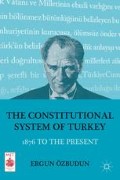Abstract
Turkey presents an interesting case, perhaps a unique one, for students of comparative constitutional law. It is the first Muslim-majority country that combines a reasonably stable democratic regime with a thoroughly secular legal system. It has had a long, although checkered, experience in constitutional government.1 The first Ottoman-Turkish Constitution dates back to 1876, at about the same time that many European countries adopted their constitutions. Since then Turkey has adopted four constitutions, those of 1921, 1924, 1961, and 1982 (which is currently in force), not to mention many radical amendments. In Samuel Huntington’s terms2 Turkey is a “second wave” democracy since it made a transition to a competitive multiparty system in 1946 after a long period (1925–1946) of established single-party rule. And yet, its democratic consolidation lags behind many “third wave” democracies, notably those of Southern, Central, and Eastern Europe. Freedom House, one of the leading democracy rating organizations, still lists Turkey in the “partly free” category, or as a “semi-democracy.” Turkey’s democratic experience has been interrupted three times by military interventions—in 1960, 1971, and 1980—not to mention the so-called postmodern coup of 1997. It still is in search of a truly liberal and fully democratic Constitution. However, these efforts have encountered major obstacles as will be spelled out in Chapter 9.
Access this chapter
Tax calculation will be finalised at checkout
Purchases are for personal use only
Preview
Unable to display preview. Download preview PDF.
Notes
Ergun Özbudun and Ömer Faruk Gençkaya, Democratization and the Politics of Constitution-Making in Turkey (Budapest and London: Central European University Press, 2009), pp. 7–29.
Samuel P. Huntington, The Third Wave: Democratization in the Late Twentieth Century (Norman and London: University of Oklahoma Press, 1991).
Stanford J. Shaw and Ezel Kural Shaw, History of the Ottoman Empire and Modern Turkey, Vol. II: Reform, Revolution, and Republic, The Rise of Modern Turkey, 1808–1975 (Cambridge: Cambridge University Press, 1977), p. 3.
Stanford J. Shaw, “The Central Legislative Councils in the Nineteenth Century Ottoman Reform Movement before 1876,” International Journal of Middle East Studies 1, no.1 (1970): 54–56.
Roderic H. Davison, Reform in the Ottoman Empire, 1856–1876 (Princeton, NJ: Princeton University Press, 1963), pp. 147–149.
Robert Devereux, The First Ottoman Constitutional Period: A Study of the Midhat Constitution and Parliament (Baltimore, MD: Johns Hopkins University Press, 1963), pp. 126–148.
Feroz Ahmad, The Young Turks: The Committee of Union and Progress in Turkish Politics, 1908–1914 (New York: Oxford University Press, 1969)
Şükrü Hanioğlu, A Brief History of the Late Ottoman Empire (Princeton, NJ: Princeton University Press, 2008).
Ergun Özbudun, 1921 Anayasasi (Ankara: Atatürk Araştirma Merkezi, 1992).
A. Şeref Gözübüyük and Zekai Sezgin, 1924 Anayasasi Hakkindaki Meclis Görüşmeleri (Ankara: AÜSBF Yayini, 1957)
Edward C. Smith, “Debates on the Turkish Constitution of 1924,” AÜSBF Dergisi 13, no.3 (1958): 82–105.
On the events leading to the military intervention of 1960, Ergun Özbudun, Contemporary Turkish Politics: Challenges to Democratic Consolidation (Boulder and London: Lynne Rienner, 2000), pp. 29–33.
Osman Doğru, 27 Mayis Rejimi: Bir Darbenin Hukukî Anatomisi (Ankara: Imge, 1998), pp. 122–124.
Quoted by Bülent Tanör, İki Anayasa: 1961 ve 1982 (İstanbul: Beta, 1986), pp. 61–67.
Copyright information
© 2011 Ergun Özbudun
About this chapter
Cite this chapter
Özbudun, E. (2011). Historical Background. In: The Constitutional System of Turkey. Middle East Today. Palgrave Macmillan, New York. https://doi.org/10.1057/9780230337855_1
Download citation
DOI: https://doi.org/10.1057/9780230337855_1
Publisher Name: Palgrave Macmillan, New York
Print ISBN: 978-1-349-29911-9
Online ISBN: 978-0-230-33785-5
eBook Packages: Palgrave Political & Intern. Studies CollectionPolitical Science and International Studies (R0)

